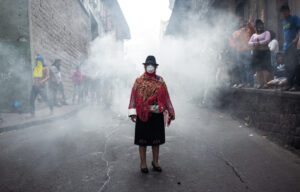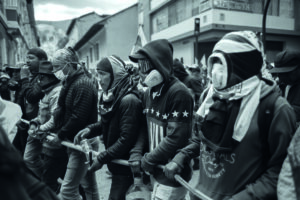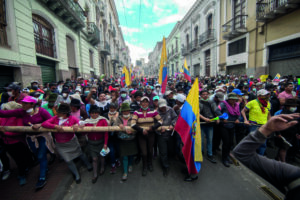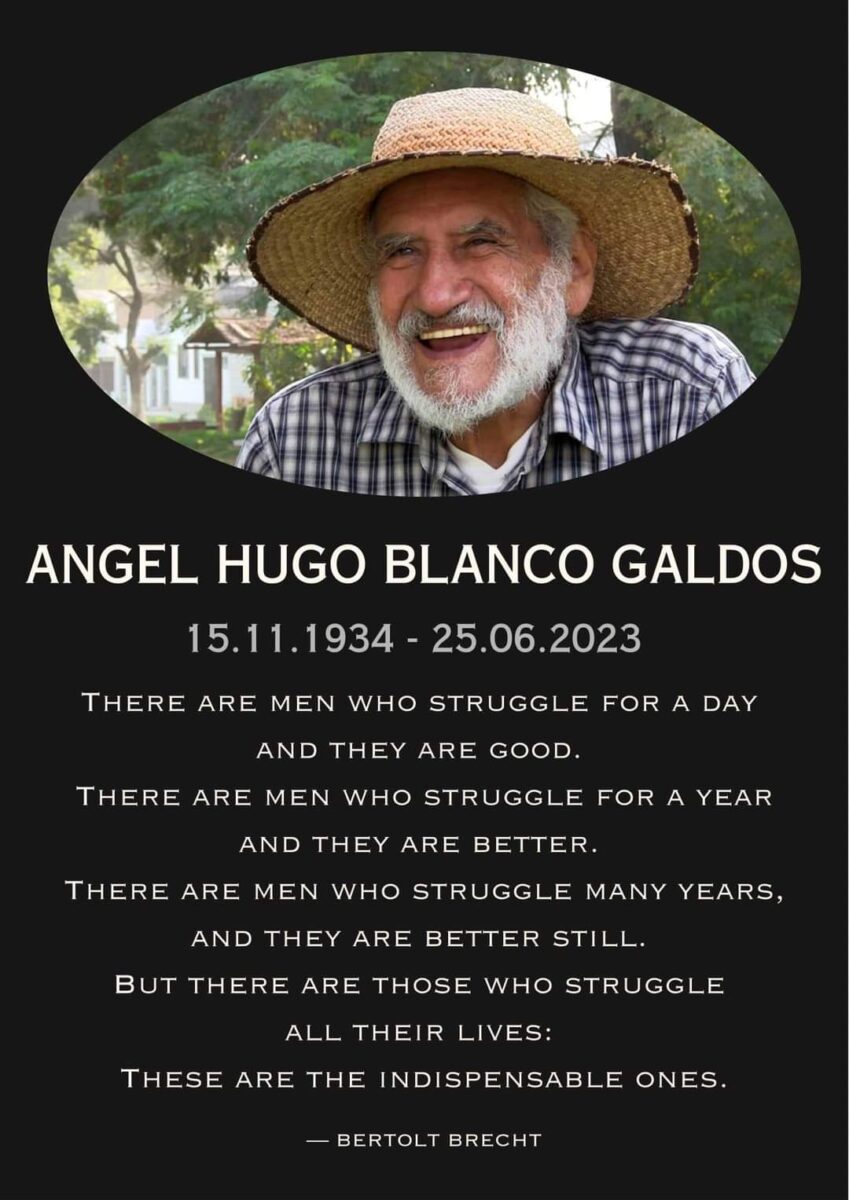At least 298 passengers who drowned in the infamous shipwreck off the Greek coast on June 14 were from Pakistan, writes Farooq Sulehria for Green Left (Australia). Twenty-five came from the same village in Pakistan-administered Jammu and Kashmir. According to some reports, more than 400 people onboard the ship were Pakistani.
Initially, when the news broke, the mainstream media in Pakistan ignored it. The tragedy only got attention when the Pakistani origins of the dead were reported. Suddenly, it was headline news. The Federal government also took “notice” of the tragedy. However, neither the mainstream media, nor government spokespersons have answered the simple question: why were so many Pakistani citizens onboard the ship that sank to the bottom of Mediterranean?
In general, the government has blamed the rackets involved in human trafficking. A few arrests have been reported. Irritatingly boring, but expected, statements have been issued by the ministers and bureaucrats to condemn human trafficking. The mainstream media, meantime, have been busy blaming the victims. The “chattering classes” ensconced in palatial villas, echoing the heartless media discourse, are also holding the “risk-taking” youth responsible for mindlessly boarding the ship and paying exorbitant sums of money to the mafias.
The fact of the matter is that poverty and an utter lack of hope drives young people to hand over their parents’ life savings to human traffickers and hop on overcrowded boats leaving the Libyan coast in the dead of night. It is not that the government or the media and chattering classes lack the knowledge about obscene poverty all around or the absence of hope in the country’s darkening future.
By blaming the victims or pointing fingers at the people-smugglers, the apocryphal “1%” in control of the government and media absolve themselves. A few savvy ones, acquainted with postcolonial theories imbibed during their student days on Western campuses, also mention “Fortress Europe” in their tweets.
Fortress Europe, no doubt, is the prime suspect in the shipwreck under discussion (more in a while). However, Fortress Europe operates in Pakistan, like other countries on the periphery, in connivance with the native 1%. This 1% is equally responsible for the 300 or so coffins to be dispatched from the Mediterranean to Islamabad. Following is the indictment of Pakistan’s 1% who connived with Fortress Europe in the shipwreck conspiracy.
Pakistan’s One percent:
Pakistan’s richest 1% own 16.8% of the wealth.
The richest 10% own 25.5%.
The poorest 40%’s share of wealth is also 25.5%.
This inequality is structured, systematised. One mechanism of this systemic inequality is the elite capture of the country’s resources.
The benefits and privileges enjoyed by different vested interest elite groups (constituting the idiomatic 1%), amount to Rs2.66 trillion (US$17 billion) annually. The taxation system is the largest source of benefits. Almost 50% of the $17-billion in benefits the elite enjoys, occurs through the tax system (benefitting the landed class, traders and high-income individuals).
The landed elite, for instance, is granted a tax break of Rs195 billion ($1.5 billion) annually (US$1 was equal to Rs150 at the time of the study quoted here).
Rs468 billion (more than US$2 billion) in tax revenue is lost owing to tax exemptions granted to the corporate sector. Similarly, large traders and high-net-worth persons are awarded tax concessions worth Rs612 billion ($2 billion) respectively. Rs1275 billion tax concessions are granted on an annual basis. Another method benefitting the 1% (the primary beneficiary being exporters) is price mechanisms, accounting for 26%. Likewise, privileged access to land, infrastructure and capital (the military being the primary beneficiary) accounts for 24% of the Rs17 billion collective class privilege.
Ironically, the corresponding cost of social protection programs is roughly Rs600 billion (US$2 billion). Roughly 10% — if health is excluded — of the population is covered by a social protection net. “If just 24% of the privileges of the powerful were diverted to the poor, this would double the benefits available to poor Pakistanis,” claimed a United Nations Development Programme (UNDP) study.
But how many poor are there? At least 32% in a country of 220 million people are poor. Based on the UNDP’s Human Development Index, in 2021–22, Pakistan ranked 161st out of 192 countries. According to the UNDP’s multidimensional poverty index, 38.3% — based on a 2017‒18 survey — face multidimensional poverty, 21.5% face severe multidimensional poverty, while 12.9% of the population is vulnerable to multidimensional poverty. The intensity of deprivation is 51.7%.
Inequality as panacea
In the 1960s, a policy of “functional inequality” (à la Simon Kuznets) was introduced. In other words, a strategy of unequal growth, accentuating inequality, was deployed in order to enable the capitalist class to accumulate more capital so that the rich had a higher level of savings.
These savings, it was assumed, would be invested into industry, resulting in higher economic growth. As far as inequalities were concerned, Simon Kuznets’ theory was deployed to project an optimistic future: market mechanisms would in time overcome the inequality during the initial stages of unequal growth. This policy has “persisted to this day”, claimed Pakistan’s noted economist Akmal Hussain in his recently published tome.
The result of these policies in the 1960s has recurred almost every 10 years: exports based on primary goods and low-value-added agricultural-based manufactures do not keep pace with the import requirements of a rapidly growing manufacturing sector. This, in turn, leads to the following two consequences. Firstly, a balance of payments crisis occurs since growth after an initial spurt slows down. Secondly, to overcome economic slowdown, foreign aid was/is deployed. This is one critical way Fortress Europe enters Pakistan to trap the country into forever-ballooning debt.
Enter ‘Fortress Europe’
Negotiations with the International Monetary Fund (IMF) were underway at the time of writing these lines. Perhaps, when 300 Pakistanis were handing over Rs2.3 million (US$7000) each to the human traffickers for their fateful journey, the IMF-Pakistan negotiations were also underway. Pakistan has been begging for months for a $1-billion tranche. To secure $1 billion, Pakistan paid $12 billion during the first half of the 2021–22 financial year (FY).
Pakistan’s total external debt and liabilities have reached $127 billion (41% of gross domestic profit). Meanwhile, its sovereign bonds have lost more than 60% of their value, exports have declined to 7%, remittances have dropped to 11% and foreign direct investment has dropped to 59%. Amid this situation, its external debt repayment obligations are $73 billion over 3 years (FY 2023–25). Presently, foreign exchange reserves have been reduced to $4–5 billion. Pakistan pays more than $1 billion a month in debt repayments and interest on public debt.
While the capital in the name of “debt retirement” is welcomed in Fortress Europe, Pakistan’s labour is left to drown in the Mediterranean.
22 June 2023
Originally published in Green Left (Australia) Issue 1384 https://www.greenleft.org.au/content/shipwreck-greece-why-were-half-those-onboard-pakistanis

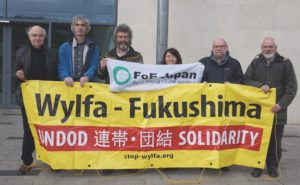 Councillor Sue Lent from Cardiff, Chair of the NFLA Welsh Forum added: “Nuclear projects are notorious the world over for being delivered very late and way over budget. Bechtel and Westinghouse have been involved in the development of two new reactors at Vogtle in Georgia. Construction there started in 2009, yet only this year will both reactors come on stream, and the project is being delivered at a cost approaching US$30 billion (£23 billion), over double the original budget.
Councillor Sue Lent from Cardiff, Chair of the NFLA Welsh Forum added: “Nuclear projects are notorious the world over for being delivered very late and way over budget. Bechtel and Westinghouse have been involved in the development of two new reactors at Vogtle in Georgia. Construction there started in 2009, yet only this year will both reactors come on stream, and the project is being delivered at a cost approaching US$30 billion (£23 billion), over double the original budget.
